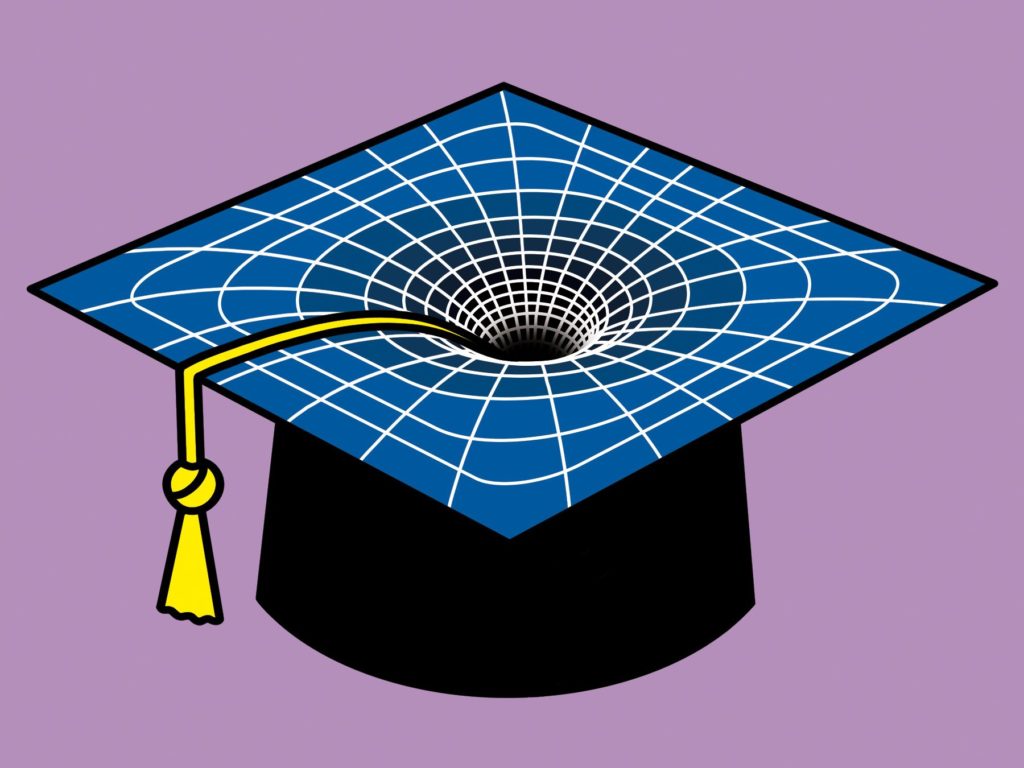
What is the purpose of higher education – knowledge or utility? Such a question encourages a false dichotomy since both are needed for people’s genuine education; never one at the expense of the other.
Higher education institutions, primarily universities, must have a two-pronged approach in the search for knowledge, to develop the highest degree of creative thought, and to contribute to the solution of concrete needs in their society and the world. Its main purpose is three-fold: A higher education institution for freedom and democracy, for knowledge and innovation, and for humankind and their environment. Three principles that respond to the question of «higher education for what?»
The first principle is that of a higher education institution for freedom and democracy. That is an institution as a place where individuals are prepared as democratic citizens for a democratic society. This requires not only the democratization of higher education through equality of opportunity for those who possess the necessary capabilities but in particular the continuation of the process of turning all members of society into genuine democrats, capable of behaving like free beings and respecting the freedom of their fellows. It also means the transformation from higher education for members of privileged economic or social classes to education for all to the limits of the individual capacity of each person (it is always preferable to have a surplus of formed citizens, capable of quickly directing their skills towards new social requirements than to have an unskilled citizenry). Finally, this principle involves educating for tolerance and comprehension, for participation and the permanent molding of an ethical and aesthetic sense in the individual consciousness.
The second principle is that of a higher education institution for knowledge and innovation, constantly striving to achieve a vigorous capacity for creation and change. That is, the ability to pre-empt the future, to constantly incorporate in the educational process the advances and discoveries related to theories,  processes, technologies, and aesthetic contributions of the spirit. An institution in a constant transformation which will have an effect on the permanent thinking upon the value systems, academic integrity. motivations, attitudes, and behavior which are appropriate to confront the processes of generation of knowledge, technology, and social practice. Flexible, diverse, liberating institution of quality which will constantly exercise its capacity for reflection to forestall events, foresees possible scenarios, and make its proposals viable. Innovation is a creative process that implies, not only the introduction of new ideas but also contributing to the process of modernization which requires standards of quality and continuity. Therefore, the snobs or «scholars of innovation» are to be feared, for, as has already been said, they are condemned to always abandon the bone they have just picked up in favor of another one without ever having time to chew on any of them.
processes, technologies, and aesthetic contributions of the spirit. An institution in a constant transformation which will have an effect on the permanent thinking upon the value systems, academic integrity. motivations, attitudes, and behavior which are appropriate to confront the processes of generation of knowledge, technology, and social practice. Flexible, diverse, liberating institution of quality which will constantly exercise its capacity for reflection to forestall events, foresees possible scenarios, and make its proposals viable. Innovation is a creative process that implies, not only the introduction of new ideas but also contributing to the process of modernization which requires standards of quality and continuity. Therefore, the snobs or «scholars of innovation» are to be feared, for, as has already been said, they are condemned to always abandon the bone they have just picked up in favor of another one without ever having time to chew on any of them.
The third and final principle is that of a higher education institution for humankind and their environment: an institution directed towards economic and social progress within the framework of sustainable development at the service of people and their environment. Development aimed at improving living conditions, not simply in response to a demand, but which is capable of transforming the demand depending upon the goals imposed by the desirable future; an institution committed to endogenous development through the solid education of human resources, the scientific and technological growth of its community and to a variable and vulnerable economy in the world context. This principle embraces the concepts of justice and the promotion of peace and solidarity within the framework of the interdependence of cultures and nations. An institution, therefore, which is open to the confrontation of knowledge and technologies with other higher education and non-higher education institutions as a contribution to universal development and cooperation that links regions, nations, and the world. Higher education institutions that will help enhance the capacity of their societies to live together in an interdependent world and whose future is the patrimony of a global society.
community and to a variable and vulnerable economy in the world context. This principle embraces the concepts of justice and the promotion of peace and solidarity within the framework of the interdependence of cultures and nations. An institution, therefore, which is open to the confrontation of knowledge and technologies with other higher education and non-higher education institutions as a contribution to universal development and cooperation that links regions, nations, and the world. Higher education institutions that will help enhance the capacity of their societies to live together in an interdependent world and whose future is the patrimony of a global society.
In summary, a higher education institution for what:
For anticipation and uncertainty; for the education of citizens capable of acting effectively and efficiently in different professional and social occupations and activities, including the most diverse, up-to-date and specialized; for the on-going intensive education of all citizens who wish to avail themselves of it; for the up-dating of know-how; for the education of those who form others; to identify and tackle the major national problems; to help focus on and resolve the broad questions which affect and concern the whole world.
 A university to cooperate with the productive sector and service companies contributing towards the progress of the nation and the world; to forge attitudes of understanding and tolerance; to supply those in government with criteria based on scientific rigor to help them make decisions in matters of such tremendous importance as the environment, in the progressive and growing invasion by the science of political decision-making.
A university to cooperate with the productive sector and service companies contributing towards the progress of the nation and the world; to forge attitudes of understanding and tolerance; to supply those in government with criteria based on scientific rigor to help them make decisions in matters of such tremendous importance as the environment, in the progressive and growing invasion by the science of political decision-making.
A higher education institution for the dissemination of knowledge; above all, a higher education institution, primarily the university which will create and foster scientific research, innovation, invention, and aesthetic creativity; a college of interdisciplinary, transdisciplinary and disciplinary quality and not a body for awarding degrees which are frequently devoid of meaning; an institution for objective criticism and the search for new channels for a more enlightened future.
A university offering new contents for genuine, participative citizenship and the practice of peace, tolerance, and ethics; an institution which will help reduce unacceptable economic and social imbalances and asymmetries; in short, a university to strengthen social, scientific and economic development, freedom, dignity and authentic democracy.
At present, we are not achieving these goals and if we continue to only reinforce a utilitarian model of higher education we will never reach those above principles and we will transform a higher education model in a very narrow ‘training’ school system.
©2020 Miguel Angel Escotet. All rights reserved. Permission to reprint with appropriate citing.
1 thought on “What Is The Purpose of Higher Education: Knowledge or Utility?”
Comments are closed.
Great article, Miguel. As one who, along with my wife, has homeschooled our three children we hoped that their university experience would bolster many of the ideals you’ve shared here. It is interesting to us that through all their university education they have, each one, chosen careers in the arts, coming to the conclusion that art has the capacity to move a greater number of hearts and minds.
Our current fixation on “training” may prove to inhibit the process of enlightenment that we so desperately need.